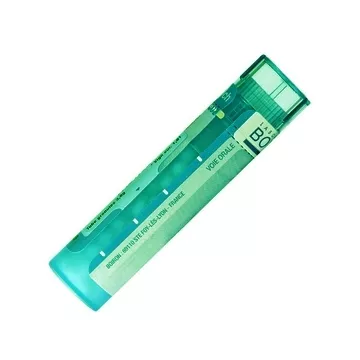

Seasonal allergy, commonly known as allergic rhinitis, is a major public health concern, affecting a large proportion of the world's population. Characterized by an over-reaction of the immune system to environmental allergens such as pollen, this condition manifests itself through a variety of symptoms that can significantly alter people's quality of life. As the seasons change, the spectrum and concentration of allergens vary, leading to fluctuating symptoms in susceptible individuals. In this context, a thorough understanding of the mechanisms, risk factors, diagnostic methods, as well as prevention and treatment strategies, is essential for effective management of this condition.
What is seasonal allergy and how does it manifest itself?
Seasonal allergy, also known as allergic rhinitis or hay fever, is an exaggerated immune response to environmental allergens such as pollen from trees, grasses and herbs. This reaction generally occurs at specific times of the year, mainly in spring and autumn, when the concentration of pollen in the air reaches its peak.
The most common symptoms of seasonal allergy include nasal congestion, sneezing, eye irritation, itching and sometimes coughing. These symptoms can vary from person to person, and can greatly affect quality of life.
What causes seasonal allergies?
The causes of seasonal allergy lie in the individual's sensitivity to specific particles, mainly pollen. When these particles come into contact with the nasal mucosa, the sensitive individual's body misidentifies them as threats and triggers an immune response. This response includes the release of histamine, a substance that causes inflammation and the symptoms associated with allergy.
How can seasonal allergies be prevented and treated?
Preventing seasonal allergy involves several strategies, the most obvious of which is avoiding exposure to allergens. This can be achieved by staying indoors on days when pollen counts are high, using air purifiers and keeping windows closed.
For treatment, there are various options, including antihistamines, decongestants, nasal corticosteroids and allergen immunization therapy (also known as desensitization). It is crucial to consult a healthcare professional to choose the most suitable treatment, as each individual may react differently to medication.
Can seasonal allergies be cured?
Although there is no definitive cure for seasonal allergy, many people are able to effectively control their symptoms through a combination of preventive measures and medical treatment. Desensitization, in particular, offers a long-term approach that can reduce sensitivity to allergens over time.
Can seasonal allergies evolve over time?
Yes, the severity and nature of seasonal allergy symptoms can change over time. Some individuals may experience an improvement in their symptoms, while others may see their condition worsen. Environmental changes, such as moving to a new area or variations in pollution levels, can also influence the evolution of the allergy.
What are the best ways to diagnose seasonal allergy?
Diagnosis of seasonal allergy relies primarily on clinical assessment of symptoms by a healthcare professional, complemented by specific tests. Allergen skin tests, in which a small amount of allergen is applied to the skin to observe a reaction, are commonly used. Blood tests, measuring the level of IgE antibodies specific to an allergen, can also be carried out. These methods help pinpoint the allergens responsible, and guide the treatment plan.
How can the indoor environment influence seasonal allergies, and how can it be managed?
The indoor environment plays a crucial role in the management of seasonal allergy, as allergens can easily accumulate there. To minimize exposure, we recommend using air purifiers with HEPA filters, regularly cleaning surfaces and fabrics, and keeping humidity levels low to prevent mold proliferation. In addition, avoiding drying laundry outdoors during periods of high pollen concentration can also reduce allergen intrusions indoors.
Are there any natural remedies for seasonal allergies?
While natural remedies do not replace medical treatments for seasonal allergies, some can offer complementary relief. Nasal rinsing with a saline solution can help remove allergens from the nasal passages. Consumption of local honey, although anecdotal, is sometimes suggested to help desensitize the body to local allergens. However, the effectiveness of these methods can vary from person to person, and should be discussed with a healthcare professional.
Can seasonal allergies have an impact on mental health?
Yes, seasonal allergies can have a significant impact on mental health. Persistent symptoms can lead to sleep disturbances, fatigue, and affect mood, contributing to feelings of anxiety or depression. It is important to recognize this aspect of allergy and seek appropriate support, both for the management of physical symptoms and for emotional well-being.
Does air pollution affect seasonal allergies?
Air pollution can aggravate seasonal allergy symptoms. Pollutant particles can not only irritate the respiratory tract, but also carry allergens further into the air, increasing exposure. Studies have shown that on days of high pollution, allergic individuals can experience an intensification of their symptoms. It is advisable to monitor air quality indices and limit outdoor activities during pollution peaks to minimize exposure.